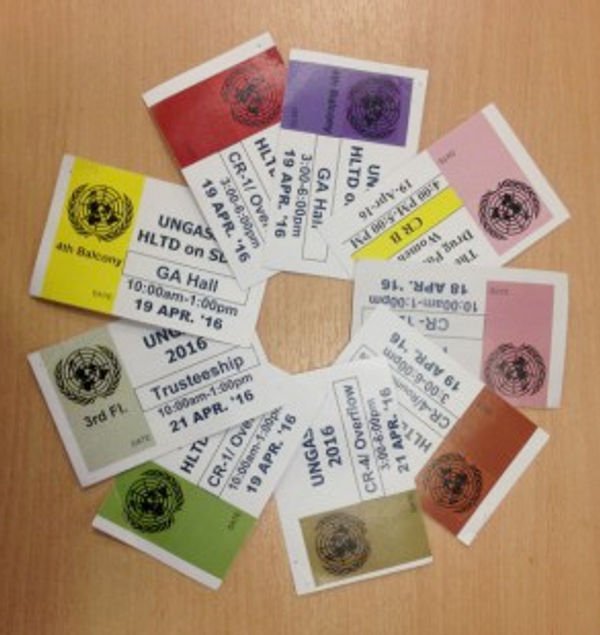Reflecting on UNGASS: Disappointment and hope for sustainable development
A few weeks ago we attended the United Nations General Assembly Special Session on the World Drug Problem (UNGASS) in New York. This was the first time in 18 years that such a high level meeting has taken place to debate drug policy. For many working on the issue it was a significant opportunity to challenge the prohibition paradigm, and sow the seeds of reform.
Yet for us and other civil society attending, the meeting was a constant battle against exclusion. Despite having followed every process necessary to ensure access, the rules of admission changed not only daily, but hourly in some cases. This led to surreal levels of bureaucratic and security restriction, which limited and denied access to meetings and debates which many had travelled far to attend. The closed process of negotiations prior to the meeting in New York excluded not only civil society, but also more than 100 UN member states, largely from the Global South.
Whilst disappointing overall, the final outcome document adopted by all member states at the meeting contains some promising points on development. These include strong commitments to ensure access to controlled drugs for medical use, by targeting barriers in national legislation and regulations, with the aim to improve capacity, education and training, and affordability, all of which currently limit access to essential medicines.
The need to mainstream a gender perspective across all drug control policies, and to address specific gendered needs and vulnerabilities associated with involvement in the drugs trade was also recognised. Commitments were also made to address the disproportionate numbers of women being imprisoned on drug related charges, and gendered barriers in access to health, care and social services.
Click here to read the full article.
Keep up-to-date with drug policy developments by subscribing to the IDPC Monthly Alert.
Thumbnail: Health Poverty Action
